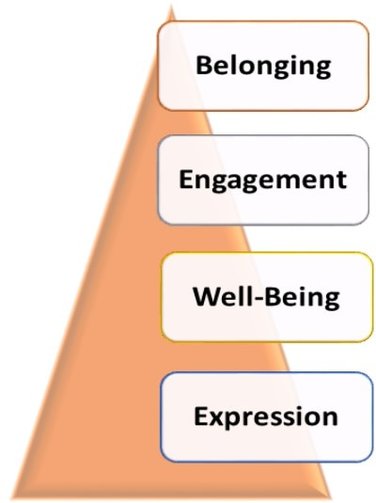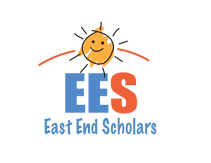Our Program Statement
East End Scholars is part of a greater community support system for families. We work hard to create an inviting, caring, warm and safe environment where parents are encouraged to participate as the families grow and learn together. We believe that all children are naturally motivated to explore, discover and learn. Providing them an enriched environment that supports their freedom to explore will encourage them to become learners who are self motivated.
Our understanding of children and families has evolved over time and is influenced by experience, collaboration with families and our community partners. We understand that all families are different and that a child’s most important teachers are their parents, who want what is best for their children and who know them best.
We believe in a “heart centred” approach to our profession. A child’s social and emotional growth are the primary focus of our trained and caring teams. These are part of the key foundational skills for success in later life. Environments that provide for role modelling and full adult engagement in play are some of the ways we contribute to the child’s social and emotional well being.
As proud providers of a high quality licensed child care program in Hamilton, we actively participate in ongoing quality initiative programs within our child care community. Our child care centres are fully licensed by the Ministry of Education and we are regulated under the Child Care and Early Years Act, 2014.
Evidence from diverse fields of study tells us that early year’s programs play an important role in supporting children’s learning development, health and well-being. Our Registered Early Childcare Educators work with the Ministry of Education’s How Does Learning Happen? (HDLH) framework; Ontario’s Pedagogy for the Early Years as a professional learning resource. At the core of this framework are relationships and this structure helps guide those working with young children and families. The foundations of HDLH include; Belonging, Well-Being, Engagement and Expression.
Our understanding of children and families has evolved over time and is influenced by experience, collaboration with families and our community partners. We understand that all families are different and that a child’s most important teachers are their parents, who want what is best for their children and who know them best.
We believe in a “heart centred” approach to our profession. A child’s social and emotional growth are the primary focus of our trained and caring teams. These are part of the key foundational skills for success in later life. Environments that provide for role modelling and full adult engagement in play are some of the ways we contribute to the child’s social and emotional well being.
As proud providers of a high quality licensed child care program in Hamilton, we actively participate in ongoing quality initiative programs within our child care community. Our child care centres are fully licensed by the Ministry of Education and we are regulated under the Child Care and Early Years Act, 2014.
Evidence from diverse fields of study tells us that early year’s programs play an important role in supporting children’s learning development, health and well-being. Our Registered Early Childcare Educators work with the Ministry of Education’s How Does Learning Happen? (HDLH) framework; Ontario’s Pedagogy for the Early Years as a professional learning resource. At the core of this framework are relationships and this structure helps guide those working with young children and families. The foundations of HDLH include; Belonging, Well-Being, Engagement and Expression.
|
Belonging – Every child develops a sense of belonging when he or she has a sense of connectedness to others, forms relationships and makes contributions to a group and a community.
Engagement - Every child is an active and engaged learner who explores the world with their body, mind and senses. When able to explore, and play they begin the journey of inquiry where they begin to develop skills that will form the foundation for success in later years. Well-Being – Mental and Physical health is of primary importance. Fostering their capacity for self awareness and self regulation contribute to a child’s sense of well-being. Expression – This takes many different forms. Every child is a capable communicator and they develop the ability for the many aspects of communication; verbal and physical. Rich, engaging environments support the development of their capacity for increasingly complex communication. |
Our Objectives
- At East End Scholars we ensure an overall experience of warmth, caring and family. We promote the health, safety, nutrition and well-being of the children. Our on-site kitchen allows for us to provide nutritious, home style cooked meals that follow the Canada food guide. Our overall daily practices throughout the centre and on the playground, provide for an environment that promotes the health, safety and overall well being of all our children.
- All staff will support positive and responsive interactions among the children, parents, and child care providers. Our qualified team of Registered Early Childhood Educators (RECE’s) will continuously engage with the children and support their learning and social development through play and exploration. The individual needs of each child will be documented and communicated with parents to encourage positive responsive interactions. We use email, newsletters, and social media to connect with families. In addition, to face to face conversations on a daily basis.
- Children benefit socially, emotionally and physically from a positive approach. We encourage children to interact and communicate in a positive way and support their ability to self-regulate. Our team at Fan-Tastic Scholars model appropriate behaviour and support our children in communicating positively when conflicts arise. We teach our children to recognize feelings in themselves and others that will help them self regulate and enjoy better relationships.
- Exploration and inquiry are part of the foundation for learning. Our qualified team of Registered Early Childhood Educators (RECE’s) cultivate and encourage curiosity, exploration, play and inquiry to support a child’s intellectual and social development. Children are encouraged participate in a variety of activities and to make choices. This experience is supported by educators whose documented observations allow them to be attentive to the child’s individual needs.
- We provide child-initiated and adult-supported experiences Through their observations, the team of Registered Early Childhood Educators at East End Scholars discover a child’s interests, implement activities around that interest, guide them to expand their knowledge and support their learning experience.
- Active play and social interaction form a large part of a child’s development. Teachers plan and create a positive learning environment based on observations of a child’s interests that highlight their needs, limitation and skills. Teachers positively support a child as they challenge them intellectually, physically and socially to gain and improve on their competencies. We plan for and create positive learning environments and experiences in which each child’s learning and development will be supported.
- Overall well being includes a child’s need for physical activity and rest during the course of their day. Our program incorporates both indoor and outdoor play as well as a period of time for rest or quiet time. We understand that each child’s needs are individual, as are the needs of their family. Parents are encouraged to communicate any special circumstances or instructions at any time to ensure the team is meeting the child and family’s requirements. All members of the child care team practice consideration to support them when this proves to be the case through on going communication with the family, observations and documentations.
- Communication is a vital part of the teacher, parent relationship. All child care team members are committed to open and honest communication with all our families. Parents are encouraged to take part in conversations relating to the program and how their children participate in the program. Educators engage with parents when there are concerns regarding their child’s interactions with other children or teachers. These are documented to ensure there is a record. Ongoing written observations are made when necessary and parents are then addressed if and when a pattern is established. Teachers positively address the needs of all parents when it concerns the centre, program or their child.
- Community partners are an intricate part of the support system we provide families, children and our team to address their needs. When necessary we will, on behalf of our parents/ families contact community partners and assist them in accessing services for our families. Services include, but are not limited to speech therapists, support services, occupational therapists, counsellors, early year’s services, etc. Engaging with these community partners and accessing the support and services they provide our families allows for us to enhance the level of service we provide to families.
- We support staff in relation to continuous professional learning. Our educators are provided with opportunities to fulfill their continuous professional learning through workshops with peers from within their greater community. This allows them to interact and reflect upon their practices and how those practices impact the development of the children in their care.
- Document and review the strategies set out in our program statement and their impact on the children and their families. Ongoing and critical reflection of our program statement goals forms part of our monthly staff meetings. Educators maintain written logs of their daily reflections for discussion at these meetings. Strategies are revised as necessary to encourage a more positive level of teacher, child and parent interaction.
|
East End Scholars
Phone: +1 905-543-9191 Email: hello@laughlearn.ca Address: 138 Birch Ave, Hamilton ON L8L 6H7 |



